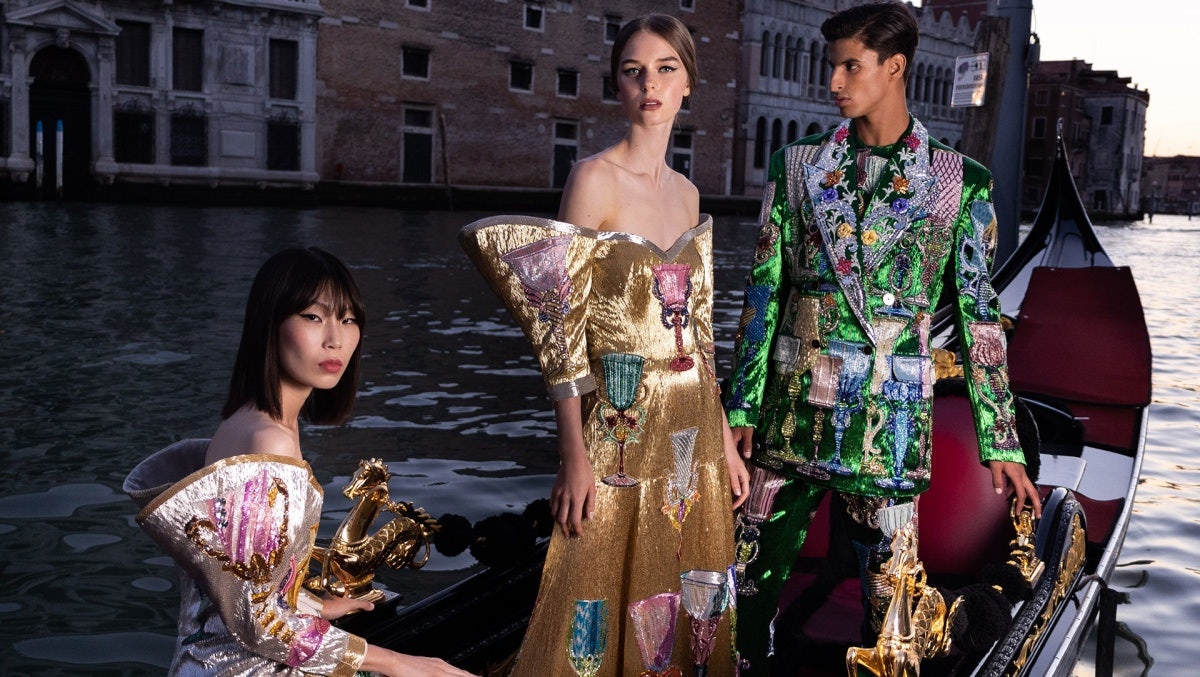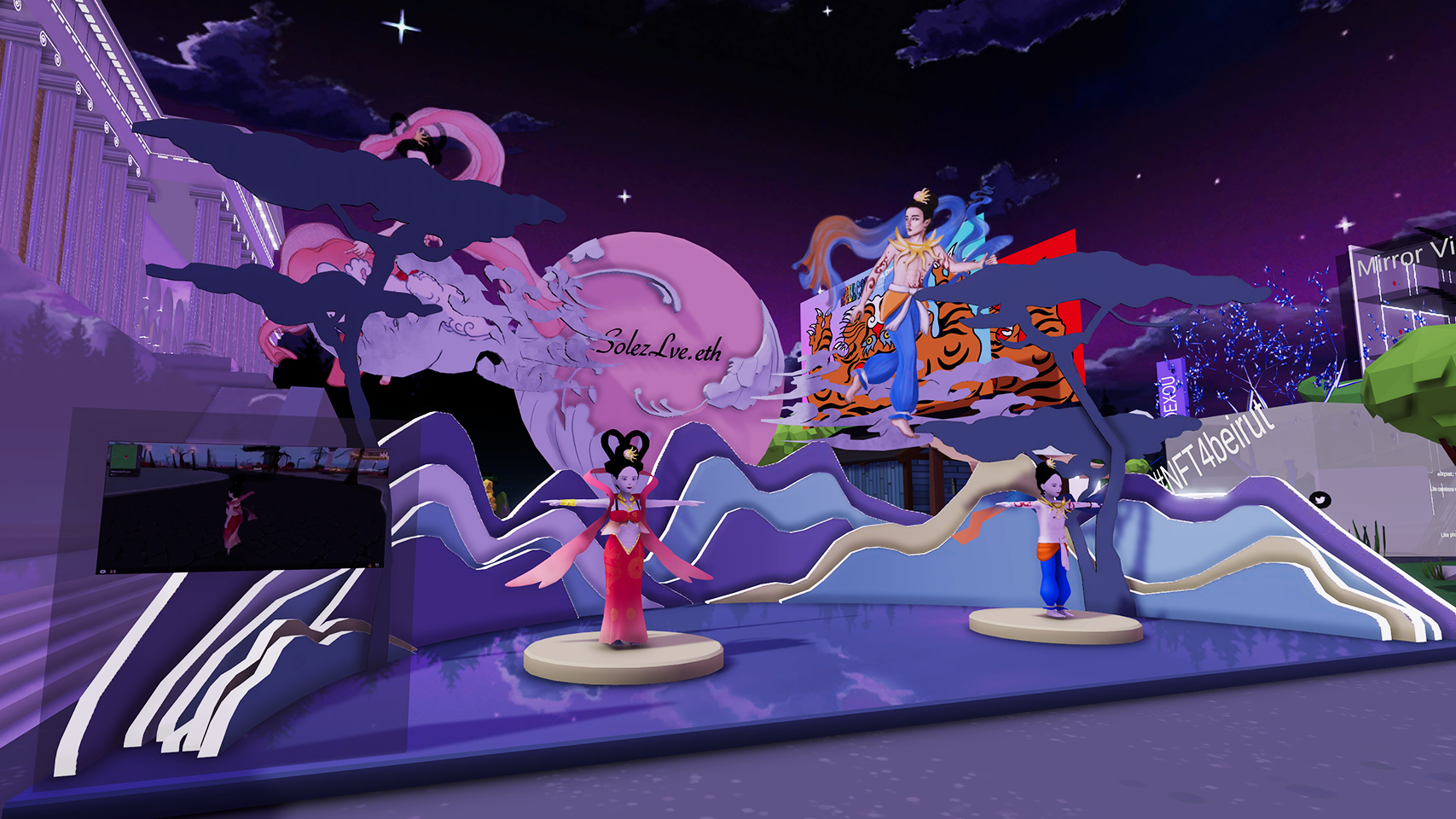What happened
As Milan Fashion Week wraps up, luxury brands are gearing up for the next major runway: Metaverse Fashion Week (MVFW). Starting on March 24, the metaverse platform Decentraland will host the world’s biggest, entirely digital fashion week, featuring four days of catwalks from well-known names like Dolce & Gabbana, Etro, Dundas, The Fabricant, and NFT superstar FEWOCiOUS. These participants will largely be showing new collections or new interpretations of existing pieces, rather than repurposing physical designs, said Giovanna Graziosi Casimiro, head of Metaverse Fashion Week.
Built in Decentraland’s newest “Luxury Fashion District,” this virtual runway will be surrounded by a high-end shopping area inspired by Avenue Montaigne in Paris — where consumers can purchase from several of the aforementioned brands as well as Tommy Hilfilger, Jacob & Co., and Cavalli — and sensorial experiences by Chinese couturier Guo Pei. Other activities include a pop-up museum, a movie theater that will present films by brands such as Chanel and Lanvin, and, of course, the “notorious After-Show Parties that are synonymous with IRL fashion weeks,” according to Decentraland.
The Jing Take
From Gucci’s NFT drop with SUPERPLASTIC to Prada’s collaborative art project with adidas Originals, luxury brands are becoming increasingly experimental in the metaverse. Just last week, the British label Roksanda took a unique approach to its first NFT release when it debuted a digital couture look at London Fashion Week — a physical dress that would never be put into production.
For these established houses, participating in this new fashion week further builds upon their Web3 ambitions. Selfridges, which was the first retailer to sell NFTs in its physical stores, will use MVFW to unveil a flagship metaverse store on March 23, for instance. At the same time, the mega-event could also give lesser-known creatives a boost; in fact, the NFT marketplace Rarible is sponsoring an area for lesser-known designers such as Artisant, Girl Gang, Fred Segal, Charlie Cohen, and Perry Ellis. Dragon City is another space dedicated to highlighting designers from Asia.
While MVFW may look similar to the other fashion weeks in terms of its activities, it offers several new selling points. For one, presentations and digital collections can go beyond physical constraints, allowing brands to really push their creativity. Two, brands that are newer to the metaverse can benefit from the infrastructure that comes with a large-scale event as well as its built-in audience. On top of this, there is greater accessibility for fashion lovers as MVFW will be open to all on Decentraland, no ticket necessary for a front row seat.
Although it is too soon to say if MVFW will ever match the “Big Four” in influence and attendance, it certainly marks the “paradigm shift around what fashion means in the 21st century,” as Decentraland put it. And with Decentraland making over 1 million in sales of avatar wearables last year, the event should help take digital fashion a step further in becoming mainstream.
The Jing Take reports on a piece of the leading news and presents our editorial team’s analysis of the key implications for the luxury industry. In the recurring column, we analyze everything from product drops and mergers to heated debate sprouting on Chinese social media.


